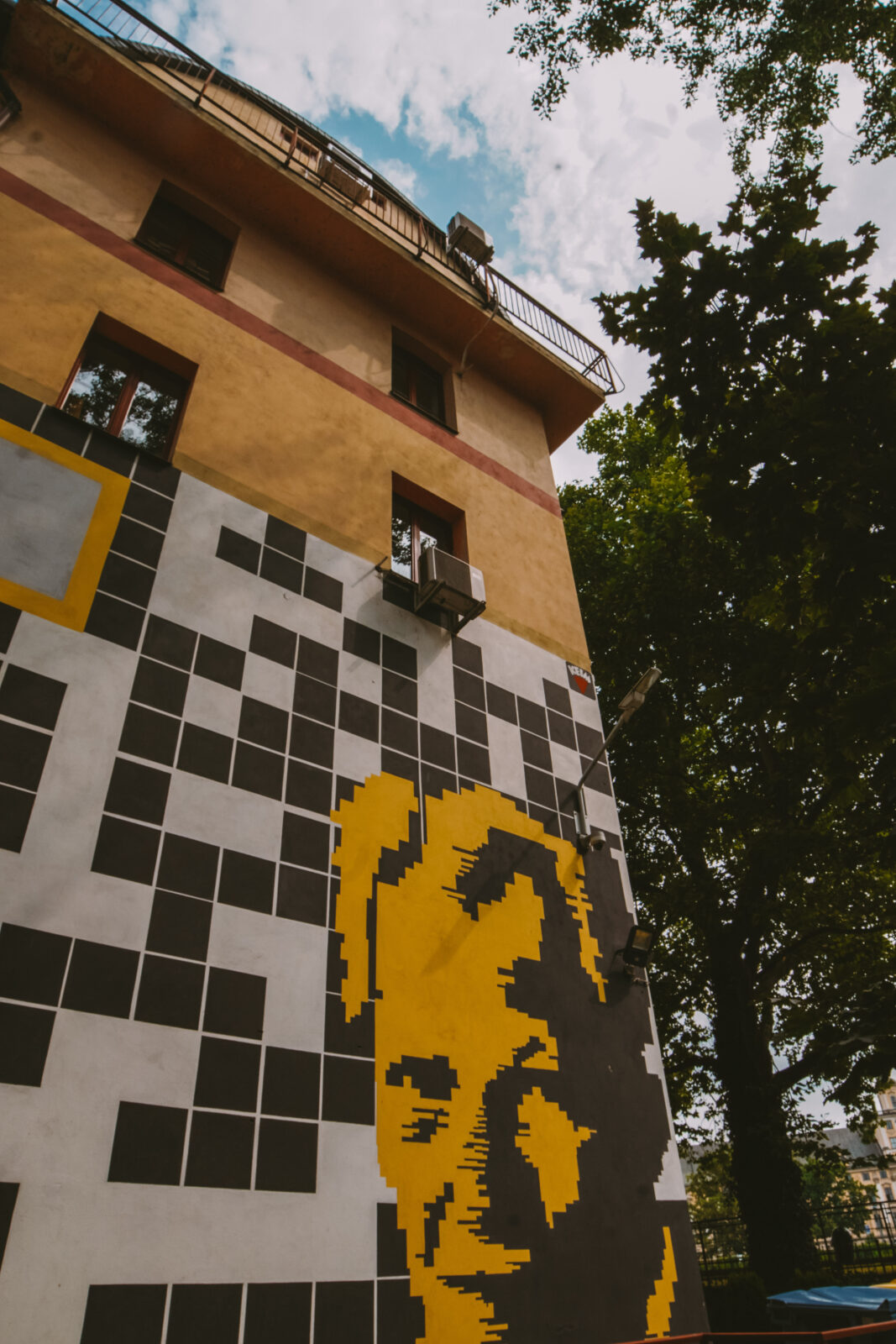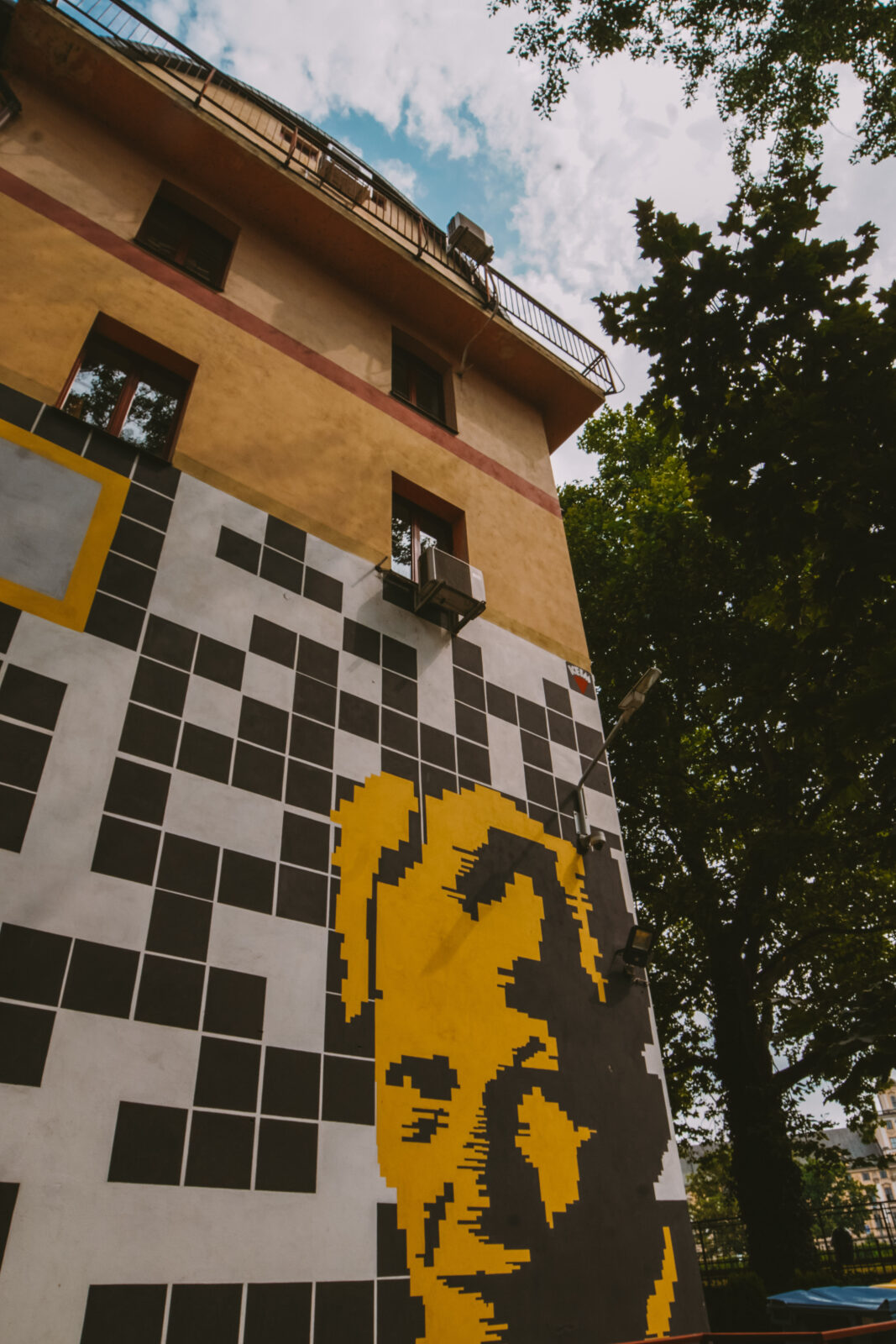
Lecture from the series “People of the Borderland”
Willy Brandt Center for German and European Studies invites you to the second lecture as part of the “People of the Borderland” series. Our guest, Daniel Pietrek, will present five reasons why it is worthwhile to study the life and works of Horst Bienk.
The event will take place on Wednesday 19 April at 5 p.m. at the Centre’s headquarters (ul. Strażnicza 1-3, Wrocław, room 13). Entry is free.
Prof. Daniel Pietrek is a literature historian and Head of the Chair of German Literature of the Institute of Literary Research at the University of Opole]
His research areas of interest are mainly German literature of the 19th and 20th centuries, German-Polish literary contacts, Silesian literature and comparative literature. Prof. Pietrek has been twice a scholar of the Alexander von Humboldt Foundation. Between 2002 and 2011, he compiled the legacy of Horst Bienk and published the effects of this work in a groundbreaking monograph for biencology: Ich erschreibe mich selbst. (Author) Biografisches Schreiben bei Horst Bienek (Dresden: Thelem 2012). In 2014, the book was awarded the Horst Bienk Award by the Bavarian Academy of Fine Arts.
People of the Borderland
Literature, culture and politics have been areas of historical dialogue between Germany and Poland for centuries and continue to be areas of encounter, exchange and friction. The German Enlightenment created critical perceptions of Poland in its narrative, which, evolving later more or less, have permanently defined the German image of Poland and Poles – often hostile – in fact up to the present day. They were still certainly present in the last century.
The conditions for dialogue, which could turn confrontation into partnership, did not emerge until after the Second World War. It was full of ups and downs, hopes and disappointments, but with all the difficulties and restrictions resulting from the bipolar nature of the world at the time, it was stubbornly pursued by both sides. As the world started growing ripe for change at the end of the 1980s, in 1989-1991 there was a breakthrough in the relationship between a free Poland and a united, democratic Germany. A negative, distrustful neighborship has been transformed into friendly cooperation, even if it is sometimes put to a severe test, as it is happening these days.
Several lectures in the series “People of the Borderland” focus on prominent actors in German-Polish dialogue, the “great lighthouse keepers” of the opening up of Germans and Poles to one another at this time. They were, and are, men of letters, with visions of the future, who treated the shaping of our mutual good relations as a task – and they have lived and are living it, in accordance with the motto formulated by Hubert Orłowski for the Poznań German Library: ‘The neighbourhood obliges’.
Two more lectures are scheduled as part of the series:
24 May 2023: Piotr Przybyła – „Lieber Landsmann…” – Wirpszowie i Günter Grass
7 June 2023: Artur Białachowski – Brightening the present. Martin Pollack’s contribution to intercultural dialogue.
We cordially invite you!
Translated by Klaudia Kuśnierz (student of English Studies at the University of Wrocław) as part of the translation practice.




